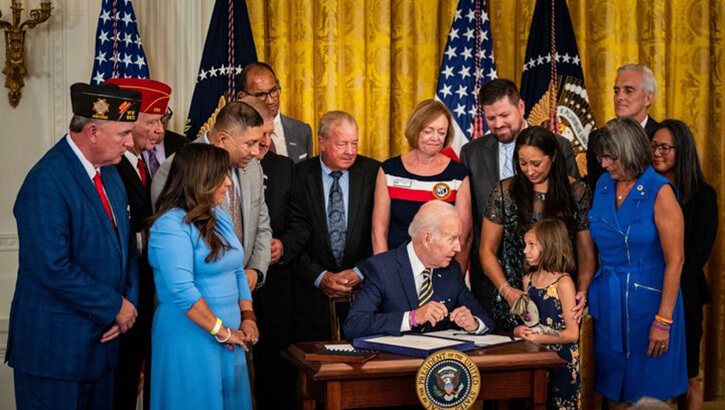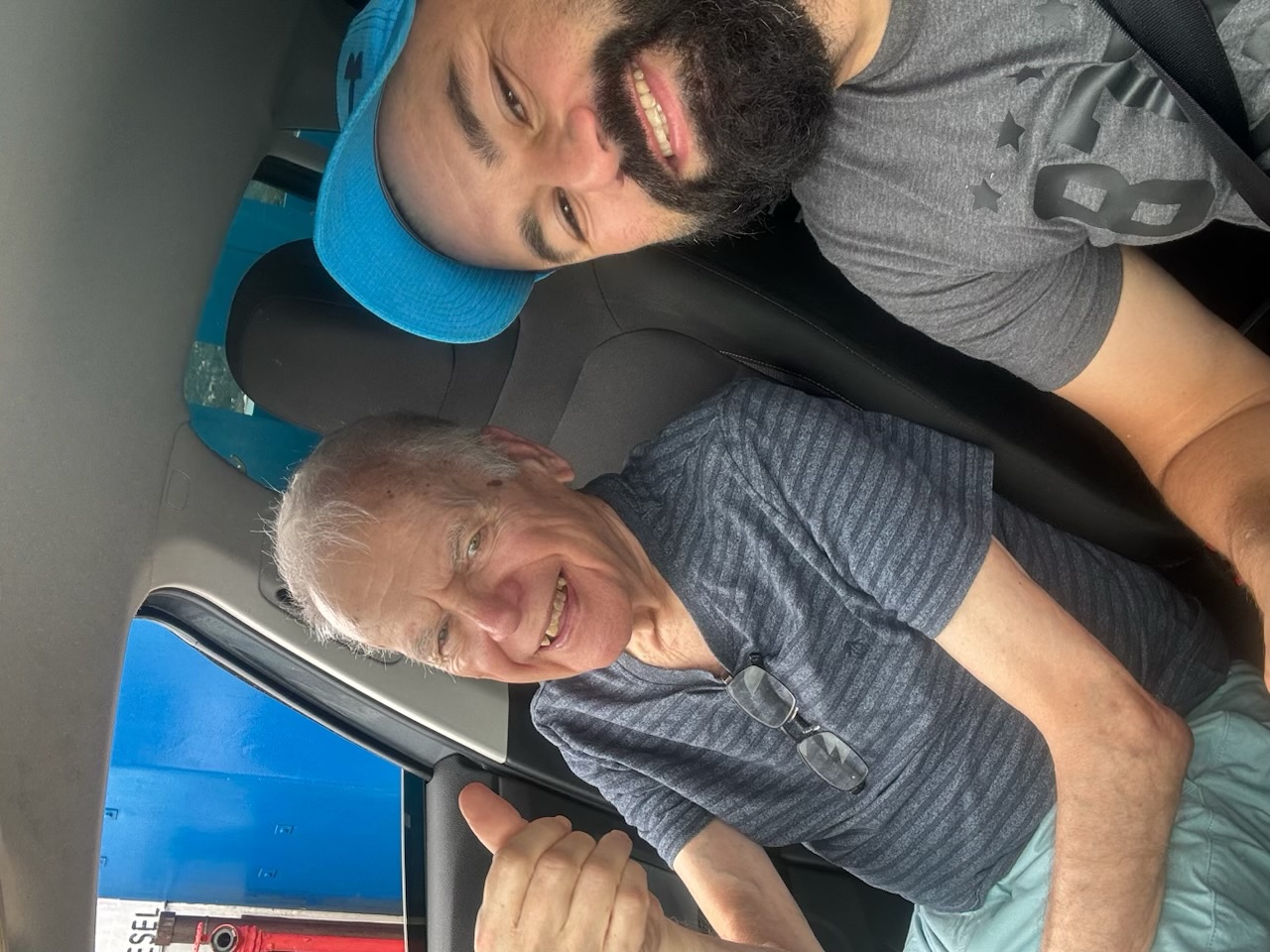Comments
FEDERAL PACT ACT - Last spring, a close friend of mine was in crisis. A veteran of the Vietnam War, he along with other members of his Marine unit sent to Southeast Asia had been exposed to the toxic exfoliant Agent Orange.
More than forty years later, like many survivors of that cataclysm, he developed symptoms that came to be diagnosed as Parkinson’s Disease. Helping him gain access to care, he had not only a devoted husband, but also a devoted son, who came back home at a crucial time.
Still, a daunting labyrinth confronted this trio: the Veterans Administration and navigating its exhaustive and often exhausting process of assessing disability status and doling out benefits.
Procedures aimed screening treatment, services, and resources to women and men who served in the armed forces and later developed neurological conditions could prove an immensely difficult and discouraging gauntlet.
Through advocacy with other veterans, I knew some who gave up. Others settled for low disability ratings with limited compensation rather than tackle the paperwork. I even knew of some whose kids had made requests, sent evidence to substantiate eligibility, and saw their loved one pass away before attaining a disability rating commensurate with reality or the family’s needs to offset expense providing dignified care.
Costs borne by family, including lost salary, for caring for those suffering Parkinson’s and other debilitating conditions can quickly soar into the tens and hundreds of thousands of dollars.
But last spring, something major had changed since the cases I had come to know since the 1990s. Passage of the federal PACT Act in 2022 had replaced the wretched maze that had long confronted veterans like my friend with a veritable bridge, complete with accessibility ramps and handrails. And what a transformation.
The PACT Act changed federal law to make disabling conditions including Parkinson’s “presumptive conditions” stemming from a veteran’s wartime service in Vietnam. And it extended the time for veterans to gain access to services.
This simple, commonsense shift saved my friend and his squad of caregivers’ months if not years of work and waiting to access medications, therapy, and caregiving.
House Veterans Committee Chair and California’s own Rep. Mark Takano sponsored the law and cheered its approval. “We’re telling our veterans the burden of proof is not on you,” Takano said. “Because of your sacrifice to our country, this Congress and the American people are giving you the benefit of the doubt you have earned.”
But despite the humane logic of the law, it faced protracted obstruction by Republicans in the U.S. Senate. “This bill would cost hundreds of billions of dollars at a time when the national debt is climbing over $30 trillion and inflation is at a 40-year high,” ranted Sen. Rand Paul (R-Kentucky).
In the end, it took relentless protest, thousands of phone calls, and an all-out grassroots lobbying blitz with a lift by comedian Jon Stewart and President Biden to break the GOP logjam.
Biden championed the law and invoked the deadly brain cancer of his son Beau, who served in the Army National Guard and did a yearlong tour of duty in Iraq starting in 2008, when he was exposed to toxic fumes from burn pits.

President Joe Biden signs the Promise to Address Comprehensive Toxics (PACT) Act on August 10, 2022, flanked by service members and surviving spouses and family of deceased veterans.
“When they came home, many of the fittest and best warriors that we sent to war were not the same. Headaches, numbness, dizziness, cancer,” President Biden said in signing the law. “My son Beau was one of them.”
In May 2024, within days of filing for VA assistance, my friend Skip Roberts, the Vietnam-era Marine Corps veteran, had multiple, weekly therapy visits scheduled. He was able to change medication to rectify a sudden intensification of symptoms. Finally, in another stroke of accommodation, the law facilitated compensation for a family member to be a paid in-home caregiver. This substituted a high wire juggling act that involved in-home cameras and alarms when both employed household members had to go to work miles away. This unavoidable circumstance had brought with it risks of falls, severe injuries, and expensive hospitalizations.

Vietnam-era Marine veteran Skip Roberts, left, and husband Roosevelt Castilho have been able to access life-sustaining treatment and caregiving services through the Veterans Administration thanks to the PACT Act.
One enduring result of Joe Biden’s 52 years of public service is making real and accessible the safety net of the Veterans Administration. The stability, enhanced dignity, and enjoyment of life by my friend Skip and his family — and thousands of others — are takeaways from Joe Biden’s term as President. This holiday weekend I will be joining my friends in celebrating this legacy while toasting the memory of Martin Luther King Jr. at the sunset of this under-appreciated Presidency.
(Hans Johnson is a longtime leader for LGBTQ+ human rights, environmental justice, and public education. His columns appear in national news outlets including USA Today and in top daily news outlets of more than 20 states. A resident of Eagle Rock, he is also president of East Area Progressive Democrats (EAPD), the largest grassroots Democratic club in California, with more than 1,100 members.)






